The Zombies – the rock band, and for that matter the fictional undead monsters – are arguably more popular than ever. The band was recently inducted into the Rock and Roll Hall of Fame, in recognition of their hit songs “She’s Not There”, “Tell Her No”, and “Time of the Season”, plus their acclaimed 1968 album Odessey and Oracle recorded just before they broke up.
Bassist Chris White wrote over half of the songs on Odessey and Oracle, and was the primary songwriter for the post-Zombies band Argent’s hit “Hold Your Head Up”. This interview with White was for a preview article for noozhawk.com for the 9/8/19 performance by The Zombies at the Arlington Theatre in Santa Barbara, in which White and other original Zombies Colin Blunstone (lead vocals), Rod Argent (keyboards, vocals), and Hugh Grundy (drums) will perform Odessey and Oracle in its entirety. The Zombies will be followed by the genius songwriter Brian Wilson, who will perform selections from the Beach Boys albums Friends and Surf’s Up, plus other Beach Boys favorites. The interview was done by phone on 8/26/19. (Photo: Payley Photography)
Jeff Moehlis: Are you looking forward to making the trip to Santa Barbara to perform?
Chris White: Oh, very much so. Rod [Argent] and Colin [Blunstone] have the touring band, and Hugh [Grundy] and I join in when we do Odessey and Oracle from beginning to end. We’ve done three tours now doing Odessey and Oracle. And, of course, playing with Brian Wilson is going to be wonderful. So I’m really looking forward to it.
JM: Were a big fan of the Beach Boys back in the 1960’s?
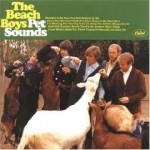
CW: Absolutely. I mean, that era of him putting out Pet Sounds, which really turned us on to his creative style… And, of course, when we do Odessey and Oracle we use Darian Sahanaja, who is Brian’s main keyboard man. He comes to play with us as well. So he’s doing a double shift this tour [laughs].
JM: Are you willing to go on record about your favorite Beach Boys song or album?
CW: It’d have to be Pet Sounds. I love all his other stuff, but it definitely has to be “God Only Knows” – I mean, that really turns you on. When we heard that experimentation, and “Good Vibrations” as well, they really were exciting times.
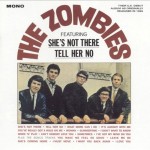
JM: I want to ask you about one of the earliest Zombies songs, “She’s Not There”. When you were recording that song, did you think that it would be a big hit?
CW: When we decided to actually try being a professional band for six months, when we won a contest, we expected everything to take off. It was the time of The Beatles, and their incredible invasion of America musically. We half expected that as long as we did something really good, it might take off. We didn’t expect it to go to Number One in America. It was 1964, and we really didn’t expect to be at the Brooklyn Fox for a Christmas show in 1964, because America was a magic land. It was really exciting when we got over to America.
JM: Any memories of that first trip to America that you’re willing to share?
CW: [laughs] Well, yes. I remember we were driving in to New York, and first of all the skyline, the music on the radio, the sound of sirens on cars – because we used to have bells on our police cars – and hearing gunshots at night. We weren’t used to any of that.
But the show with all those fantastic acts, and doing eight shows a day over Christmas, that was unbelievable. Working with our heroes, you know – Ben E. King, The Shirelles, the Shangri Las, Chuck Jackson, and Patti LaBelle. This was a magic moment for us, being right at the home of rock ‘n’ roll, which really moved us. And then later touring with Del Shannon. The excitement of playing with your heroes is one of the things I remember most.
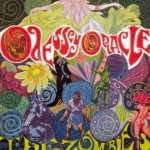
JM: Fast-forwarding a couple of years, you guys recorded Odessey and Oracle, which had a number of your songs on it. How did the band’s approach to that album differ from the earlier recordings that you had done?
CW: Quite simply, we were cheated by our manager at the time. He sent us to the Philippines for about 18 pounds each for ten days, and we thought we were playing in a hotel bar, and what it turned out was we were playing at the Araneta Coliseum, and we were playing for 30,000 people a night for ten days. So when we came back, we didn’t have a manager, and we didn’t have a record deal because Decca had dropped us, and Rod and I decided that we wanted to produce an album ourselves. We were happy with our first producer, but he made everything sound a little bit soft, and we were never allowed to go to the mixing sessions.
So we said, “Let’s do it ourselves”, and we got into Abbey Road, and of course it was just after Sgt. Pepper had been recorded. The Beatles had just left. And we had the advantage of using their engineers at probably, at that time, the best studio in the world. We only had 1000 pounds, and we had to really rehearse our stuff before we went to the studios, and we did the songs as we could hear them in our head. So this was the first time we really did it ourselves.
JM: It amazes me how short the sessions were to record that album. How did you pull it off in such a short amount of time?
CW: We were much younger then, of course, and enthusiastic, and it was our first time as producers. We were only on four tracks, because all the stuff at Abbey Road used four-track recording. But then The Beatles had asked them to do things, so we could do four tracks bounced down to another four tracks.
On top of that, John Lennon had left his mellotron in the studio, so Rod immediately jumped onto that, and after rehearsing stuff that was added, which colored the whole album. We just did what we heard in our heads. It was just a magic time. But nobody wanted it when it got released [laughs], so that’s when we split up.
JM: Of course, it became a huge album later. When did you become aware that Odessey and Oracle had become a bit of a cult album?
CW: One of my sons had just went to college, and he phoned me up and said, “Dad, the kids here all think it’s a great album. They’re playing it all the time.” So I phoned up Rod, and I said, “Rod, I think it’s become a bit of a cult album.” This was about 15 years ago. And he said, “Oh, is it? No it hasn’t.”
And then all of a sudden people like Tom Petty and other artists quoted it as their favorite album. Then we were suddenly realizing we’d never actually performed the album. So at the 40th year anniversary, we got together just to perform it, we thought, for one day. It turned out to be three days in London. And then we decided to do it in America, and it’s been fun ever since.
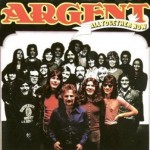
JM: After The Zombies broke up, you co-wrote a number of songs with Rod, including “Hold Your Head Up”. What’s the story behind that song?
CW: We wanted to carry on. We were the only ones that had any money, because we wrote the songs. The others couldn’t afford to live. Rod wanted to carry on with music, and he formed the group Argent. And then we later talked Colin back into making albums, so we did his first three albums.
When Argent was working in Germany, they were doing six shows a day in a nightclub, and they got tired of doing the songs. So they were experimenting with things like “Time of the Season”, and they hit this lovely rhythm, “Dum, dum, dum, bum-bum, bum”. And I liked that, because I was there with them. And then I wrote chords to it, and then I wrote a melody. So it was a three-tier thing. Then my first wife was pregnant when I was visiting Spain, and the idea of “Hold your head up, woman” came into my head. We rehearsed, and Rod put a great big solo on it, and that was it. That’s how it started.
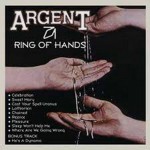
JM: I also like some of the most obscure Argent songs like “Lothlorian”, which you co-wrote.
CW: Well, Rod was very, very generous. When we decided to form a company ourselves to do productions, he said, “Why don’t we put our joint names on all the songs we write, because one hit won’t give us the money to continue.” So that was very, very generous, because he’d had “Time of the Season” and “She’s Not There” and “Tell Her No”. But then I wrote “Hold Your Head Up” [laughs]. I’ve never had any problem with that at all, because it was a great, generous offer. And it kept us going.
For “Lothlorian”, I was there with him producing it, and I did my input. We shared a flat at the time, so often we wrote at home and talked to each other when we were doing stuff. The joint writing things, it’s like Lennon and McCartney. They didn’t write all their songs together.
JM: After The Zombies broke up, you made a decision to focus more on songwriting and producing rather than performing. Why did you do that?
CW: What I’d say is, basically, I’m not a great bass player. I’m a songwriter who happens to play bass, and there were so many better bass players around that I enjoyed it much more in the studio, in the control room, and at home writing songs. I play at home. I play my bass at home when I’m writing, but until we toured with the Odessey and Oracle thing I hadn’t played onstage for 40 years.
JM: What advice would you give to an aspiring musician?
CW: I always say that songs are the bookmarks in our lives. We all have songs from specific times in our youth, and still now, that mark happy and sad times in our lives. So songs are very, very important, and if you’re a young musician, just keep writing. Write your own stuff, and don’t copy anyone else. Sing or write what’s in your heart, because we need music, especially in these times. We need music. It’s a thing that makes life much better.
JM: I should congratulate you for your recent induction to the Rock and Roll Hall of Fame.
CW: Thank you.
JM: It was long overdue in my opinion, and a lot of people’s opinion. How important was that to you and the band?
CW: Well, listen, we got inducted, and the day we got inducted, on that same day 50 years earlier, “Time of the Season” went to Number One in Cash Box. So it seemed like fate was paying us back. We still remain friends. I think we’re one of the only ’60’s bands that like each other still [laughs]. We’re all in our 70’s, and you can’t sway us. Our heads can’t be turned by it. And it was such an honor to be inducted into the Rock and Roll Hall of Fame with so many heroes who were there before us. So it was a pleasure, an absolute pleasure.
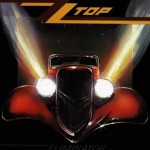
JM: One last silly question. A couple years ago I read an article about fake bands that toured America calling themselves The Zombies, including members of ZZ Top.
CW: That’s correct, yeah.
JM: Were you aware of that at the time?
CW: Oh yes, we were aware of it. Actually, once the record company asked me to phone the radio station that was promoting The Zombies, and I said, “Look, they’re not The Zombies.” He said, “Yes they are. You must be fake.” I said, “Well, Colin’s not in them.” He said, “No, Colin Blunstone died.” And so I realized that I couldn’t convince anybody that I was a Zombie. Well, Rod said the other day, “When it’s all finished, when we’re in our 80’s, we’ll go out as a fake ZZ Top band.”
JM: [laughs] It turns out that ZZ Top is performing in Santa Barbara tomorrow night.
CW: They’re a great band, actually.
JM: But maybe that’s not really them?
CW: [laughs] Probably Rod sneaked off and formed a fake group.

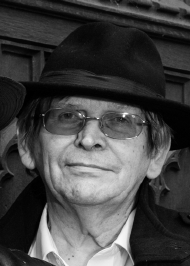
Discussion
No comments for “Interview: Chris White”